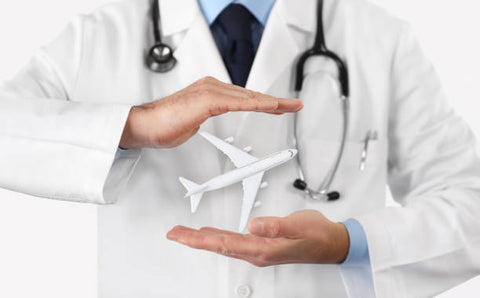
- Get Vaccinated: Get an annual flu vaccination to protect against common strains of the flu virus. Consult your healthcare provider before travel for any recommended vaccinations specific to your destination.
-
Practice Good Hand Hygiene: Wash your hands frequently with soap and water for at least 20 seconds, especially after being in public spaces, touching surfaces, or using the restroom. If soap and water are unavailable, use alcohol-based hand sanitizers.
-
Avoid Close Contact: Try to avoid close contact with sick individuals, especially in crowded places or confined spaces.
-
Cover Coughs and Sneezes: Use tissues or the inside of your elbow to cover your mouth and nose when coughing or sneezing to prevent the spread of germs.
-
Avoid Touching Your Face: Refrain from touching your eyes, nose, or mouth with unwashed hands to minimize the risk of transferring germs from surfaces to your face.
-
Maintain Good Hygiene Practices: Ensure personal hygiene by regularly showering, brushing teeth, and changing clothes. Clean frequently touched surfaces in your accommodation.
-
Stay Hydrated and Eat Nutritious Foods: Maintain a balanced diet, stay hydrated, and get plenty of rest to support a healthy immune system.
-
Stay Informed: Keep yourself informed about health advisories, travel alerts, or specific health risks associated with your travel destination.
-
Protective Gear: Consider using a face mask when in crowded or high-risk areas, especially if you're immunocompromised or traveling to areas with high infection rates.
-
Stay Updated on Travel Restrictions: Be aware of any travel restrictions or requirements, such as COVID-19 testing, quarantine measures, or entry regulations, which might be in place at your destination.
-
Stay Home if Sick: If you're feeling unwell, especially with symptoms like fever, cough, or respiratory issues, consider postponing non-essential travel and seek medical advice.
-
Stay Active and Manage Stress: Engage in physical activity, manage stress levels, and practice relaxation techniques to support overall health and immune function.
By following these preventive measures, you can reduce your risk of getting sick during flu season or while traveling. If you have specific health concerns or conditions, consult your healthcare provider for personalized advice and recommendations before traveling.












